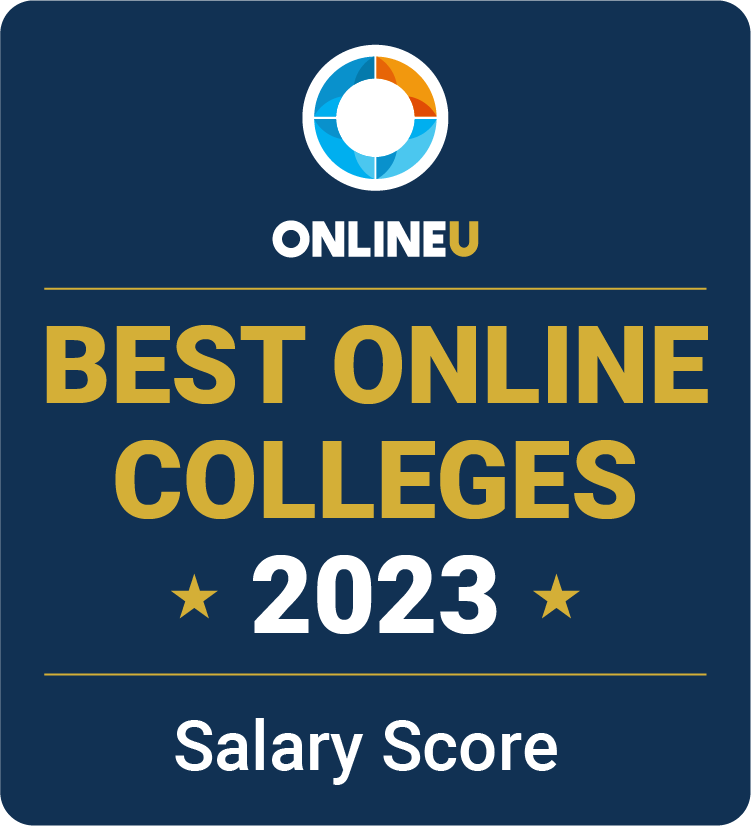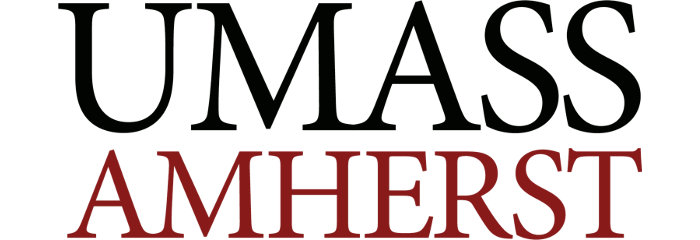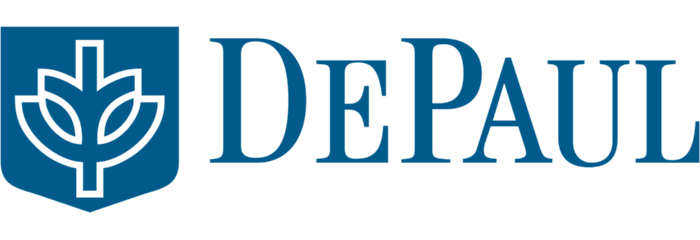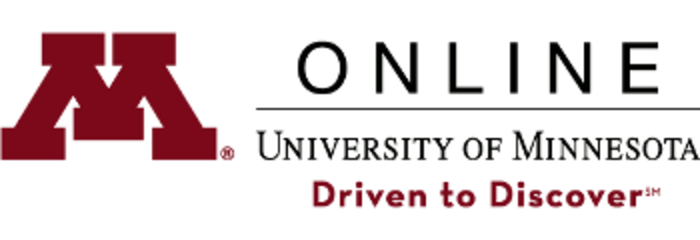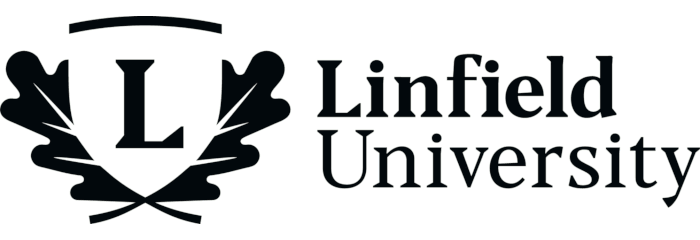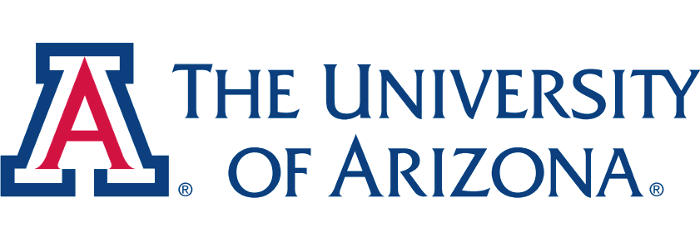2023 Best Online Accounting Bachelor's Degree Programs
Accounting majors are important for small and large businesses, nonprofits, and government agencies to analyze financial data and advise key decision makers on how to improve the health of an organization. An online bachelor's degree in accounting opens up new opportunities for students looking to enter the field while balancing other responsibilities. Graduates of accounting programs often go on to work in finance and insurance, auditing, tax preparation, banking, finance analytics, or consulting. To help prospective students maximize their investment in their education, we've ranked the best online bachelor's degrees in accounting by Salary Score. These online degrees offer the best chance at a high-paying career after college based on first-year salaries for previous graduates. View our methodology for more details about our list or learn more about OnlineU.
Learn more about how we make money. ">ADVERTISEMENT
Online Accounting Bachelor's Degrees You May Be Interested In

Arizona State University
Annual Tuition: $19,398 - $29,428
2 Programs (view all)

Southern New Hampshire University Online
Annual Tuition: $9,600
4 Programs (view all)
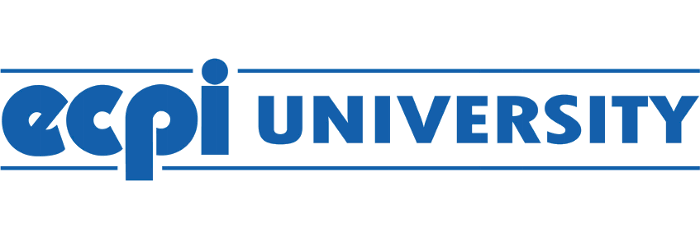
ECPI University Online
2023 Best Online Accounting Bachelor's Degree Programs
| Rank | School | Salary Score | Median Starting Salary |
|---|---|---|---|
| University of Massachusetts - Amherst | $62,571 | ||
| DePaul University | 96 | $61,704 | |
| University of Minnesota Online | 92 | $58,714 | |
| Linfield University-Online and Continuing Education | 89 | $57,453 | |
| University of Arizona | 81 | $54,832 | |
| Auburn University | 79 | $54,118 | |
| Maryville University | 75 | $53,147 | |
| Concordia University - Saint Paul | 73 | $52,642 | |
| Regis University | 72 | $52,346 | |
| Colorado Christian University | 71 | $52,258 |
2023 Online Colleges Offering Bachelor's Degrees
Ranking Details
#1 University of Massachusetts - Amherst
- Salary Score: 97
- Median Starting Salary: $62,571
- Locations: Amherst (MA)
- Accreditation: NECHE
The University of Massachusetts - Amherst offers a Bachelor of Business Administration in Accounting online, which is designed for students who have some college credit to help them complete their bachelor's degree. Students will take classes in areas such as corporate finance, taxation, and diversity in business to gain the skills necessary to work in accounting, auditing, tax, and consulting. Applicants should have at least 27 transferable credits from previous learning experiences and will need to complete 120 credits total to graduate. Graduates can explore career opportunities in finance and insurance, real estate, and professional services. Online students at UMass Amherst access class materials on Moodle and Blackboard Learn, the university's learning management systems (LMS). The university has a 65% acceptance rate and a high graduation rate of 78%.
#2 DePaul University
- Salary Score: 96
- Median Starting Salary: $61,704
- Locations: Chicago (IL)
- Accreditation: HLC
DePaul University is a private Catholic school offering an online Bachelor of Science in Business with a Concentration in Accountancy (192 credits). The program is designed to give students a strong foundation in business law, technology, management, financial analysis and interpretation while preparing them to launch their career in accounting with resume writing and interviewing skills. Students will take classes such as Cost and Managerial Accounting, Financial Reporting, and Career Management for Accountants. Program graduates may find career opportunities in auditing, taxation, international accounting, and budget analysis. Professors at DePaul use Desire2Learn, a digital learning platform that allows students to access class materials and submit assignments online. DePaul has a graduation rate of 68%, and 70% of first-time applicants are accepted, according to data from College Scorecard.
#3 University of Minnesota Online
- Salary Score: 92
- Median Starting Salary: $58,714
- Locations: Minneapolis (MN) (and 4 others)
- Accreditation: HLC
The University of Minnesota (UMN) is a public university with a 120-credit Bachelor of Science in Accounting online. The program is designed to prepare students to work in financial sectors of public, private, and government organizations. Online students at UM use Canvas to participate in class activities and discussions and submit assignments. Classes will cover foundational techniques in topics such as auditing, income tax, managerial finance, and ethics for business. Graduates might go on to careers in public accounting, financial analysis, banking, taxation, or management accounting.
#4 Linfield University-Online and Continuing Education
- Salary Score: 89
- Median Starting Salary: $57,453
- Locations: McMinnville (OR)
- Accreditation: NWCCU
Linfield University offers a Bachelor of Arts in Accounting and a Bachelor of Science in Accounting online, both of which require 125 credits. Accounting majors at Linfield should be well-versed in marketing, financial analysis, business ethics, business law, business strategy, and managing when they finish their degrees. Students will take classes in areas such as Strategic Management, Business Analytics, and Financial and Managerial Accounting. Classwork and homework assignments are completed on the LMS Blackboard. Linfield is a private nonprofit college with historical ties to the American Baptist church. The university has a 67% graduation rate. Alumni of the bachelor's in accounting programs at Linfield have gone on to internships at companies such as PriceWaterhouse Cooper, Moss Adams, and Ernst & Young.
#5 University of Arizona
- Salary Score: 81
- Median Starting Salary: $54,832
- Locations: Tucson (AZ)
- Accreditation: HLC
The University of Arizona, a public school with a large online platform, offers a Bachelor of Science in Business Administration - Accounting online. The accounting major is designed to teach students skills in critical thinking, problem-solving, financial analysis, and communication strategies necessary to be successful in a finance-focused career. Students might take classes in areas such as cost accounting, federal taxes, and financial analytics. The bachelor's program requires 120 credits which typically takes students four years to complete when enrolled full-time. Alumni of the program may find job opportunities in areas such as financial consulting, auditing, and tax preparation. UA has an acceptance rate of 85% and a graduation rate of 64%.
Overview of Online Bachelor's in Accounting
Bachelor's degrees in accounting offer in-depth study in accounting principles, including cost accounting, managerial accounting, financial statements, and auditing. In addition, some bachelor's programs allow students to focus on a specific subspecialty, such as tax or forensic accountancy. An online bachelor's degree in accounting prepares students to take the certified public accountant (CPA) exam . The degree also equips students with the necessary skills to become accountants and auditors, analysts, and financial planners. Graduates work for the government, private industry, major accounting firms, and even for themselves as tax preparers, consultants, and personal financial planners.
Bachelor's accounting programs are designed to be completed in four years for full-time students and are worth approximately 120 credit hours. Most students take four to five years to complete a program. However, schools may offer accelerated online programs that may take students about two years to complete. Some online programs may require that students complete accounting internships or externships, while other degree programs may be completed exclusively online. We have found many online bachelor's accounting degree programs available, with tuition ranging from $7,000 to $21,000 per year. With so many options, you can find an affordable program that fits your budget and helps you meet your professional goals.
Bachelor's degrees in accounting offer in-depth study in accounting principles, including cost accounting, managerial accounting, financial statements, and auditing.
Is an Online Accounting Degree Worth It?
Our research shows that an online accounting degree is worth it. The
Potential Benefits:
- An accounting program can prepare you for many business careers. Whether you want to be an accountant, an entrepreneur, or a CEO, it always helps to understand financial regulations, reporting, and responsibility.
- You can find work just about anywhere. Any business that handles finances needs accounting professionals. This career path can lead to positions in virtually any industry, or you could even open your own accounting, consulting, or financial planning firm.
- Completing an accounting program online may pair well with a busy schedule. Attending classes online can be convenient, especially if you are trying to balance work and other responsibilities. You can set your schedule and work in the comfort of your home.
Potential Drawbacks:
- Accounting work can be stressful. Accounting work requires a lot of focus and concentration. It can be intense at times, especially during tax season or at the end of a fiscal year. The demands placed on you may be high when working with a company's finances.
- Accounting work can seem dull. Day-to-day work can require a lot of research and math, which some may find tedious. It can also mean you'll be doing a lot of work independently and quietly, which may not be appealing for some.
- It can be difficult to network with others when not attending classes in-person. Making meaningful connections with peers and instructors when attending online courses can be hard, especially if a school doesn't provide engagement opportunities.
Common Bachelor's in Accounting Courses
While course titles may differ from school to school, accountancy programs are designed to meet similar learning objectives and outcomes. Courses and programs are designed for students to become CPAs and earn other certifications. The core courses, such as those listed below, will help you hone critical and analytical thinking skills, financial, and organizational skills, as well as general business and communication competencies.
- Auditing: Through case studies and problem sets, instructors will demonstrate how to design, apply, and evaluate an audit. Topics may include common audit standards, tests and controls, and statistical samplings.
- Corporate taxation: The content in this course focuses on the theories, policies, and procedures behind federal income taxation and how taxation applies to corporations, estates and trusts, gifts, and partnerships.
- Cost accounting: Students will become familiar with the roles of accountants in areas such as decision-making, cost behavior, cost planning, and cost methods. They'll learn to see how to apply basic cost accounting concepts using technology to develop financial deliverables, evaluate data, and communicate findings.
- Financial management: Students are instructed on how to apply financial management analytical techniques for decision-making. Content may include formulating financial objectives and policies, planning and control, asset management, capital budgeting, and securities valuation.
- Fraud and forensic accounting: This course introduces students to the tools used to detect fraud and understand why fraud occurs. Instructors discuss how public, internal, and private accountants can create detection and prevention plans.
Specializations
Some schools allow you to specialize by focusing your accounting program studies in your area of interest, which may increase your growth potential and give you a competitive edge.
- Tax accountancy focuses on taxes rather than public financial statements. Tax accountants prepare and file tax returns for businesses and individuals by following the Internal Revenue Code.
- Assurance and auditing accountancy focuses on reviewing and investigating accounting work. Professionals look for and correct accounting irregularities.
- Analytics accountancy focuses on financial analysis and decision-making. Analysts take complex data and make it more easily accessible to stakeholders. This data helps business leaders make informed decisions to meet an organization's goals.
Accreditation for Online Accounting Degrees
According to the U.S. Department of Education (USDE), accreditation assures students and potential employers that a program meets the requirements for academic quality. Students must be enrolled in an accredited school to receive federal financial aid, and degrees from accredited programs are widely accepted in the accountant job market.
Accrediting agencies are either state, regional, or national in their focus. An entire school may be accredited for all of its programs, and specific programs within a particular institution may also be accredited, referred to as specialized or programmatic accreditation. For those who would like to become CPAs, it is highly recommended they complete a program with the Association to Advance Collegiate Schools of Business accreditation .
Accreditation assures students and potential employers that a program meets the requirements for academic quality.
To determine whether a particular online accounting program is accredited, check with the USDE’s Database of Accredited Postsecondary Institutions and Programs or the Council for Higher Education Accreditation.
Careers with Accounting Degrees
Accounting graduates often become accountants and auditors who prepare and examine an individual's or company's financial records. They ensure accuracy, look for discrepancies, and evaluate risk. They may also prepare tax returns. Auditors identify potential risks for fraud. The Bureau of Labor Statistics lists the annual median salary for graduates who become either accountants or auditors at $73,560, with a projected 7% job growth. Once you learn the basics, there are many different accounting career paths you can take. Some may require additional certification or credentials.
- Budget analysts help organizations plan their finances. They often work with program and project managers to develop, implement, and manage budgets.
- Controllers are financial managers responsible for the financial health of a company and may supervise accounting staff. They help company leaders make financial decisions that impact the organization and seek ways to reduce costs.
- Financial analysts help businesses and individuals decide how to spend their money to increase profitability. They study business and economic trends, financial statements, and historical financial data.
- Personal financial advisors work with clients to help them meet their financial goals. They monitor clients' financial accounts for performance and educate their clients about investment options and potential risks.
How to Become a Certified Public Accountant (CPA)
Many accounting jobs require the work of a Certified Public Accountant, especially if you'll be working with taxes. Certification requires passing the Uniform CPA Examination. The exam is broken down into four parts, which need to be completed within 18 months. You also need a bachelor's degree and 150-semester credit hours before applying for your license. Some states may waive certain education requirements in favor of work experience.
Once you've passed the exam, have completed a total of 150 credits, and have one year of approximately 2,000 hours of CPA-verified work experience, you can apply for your state license.
States may also require the completion of other exams, such as an ethics exam. However, every state requires continuing education courses to keep your license active and your skills relevant.
How to Become a Certified Management Accountant (CMA)
Unlike CPAs, CMAs rarely work with the public. Instead, they work specifically with businesses and organizations to offer financial advice. CMAs serve as counsel on all financial matters, including corporate spending, taxation compliance, planning, and budgeting. With the increasing number of industries turning to CMAs for financial help, the earning potential and job prospects for CMAs are very promising.
The Institute of Management Accountants offers the CMA program and examination to candidates with an accredited bachelor's degree and at least two consecutive years of experience in management or financial accounting. CMAs have above-average skills in risk analysis, financial decision-making, and internal controls.
The CMA exam is administered in two parts. Applicants are required to complete both parts of the exam within 36 months after enrolling in the CMA program. Once certified, you'll need to meet continuing education requirements to keep your skills and certification current.
Other Accounting Certifications
There are many other certifications available to help accounting professionals specialize and demonstrate competency. Here are just a few of the popular certifications that accounting professionals can earn.
- Certified financial planners help individuals manage their finances and plan for future financial security. You can apply to become a CFP from the Certified Financial Planner Board of Standards once you've met education and work experience requirements. These include a bachelor's degree from an accredited university and the completion of coursework from a CFP Board Registered Program in such practices as education planning, risk management, and insurance planning. You will also need at least three years (6,000 hours) of financial planning experience. Once you've met these requirements and passed a background check, you may become certified.
- The Institute of Internal Auditors offers the most widely recognized standards of practice and certification. The Certified Internal Auditor credential (CIA) is awarded to those who can demonstrate a comprehensive understanding of internal auditing. To receive the CIA, you must complete program requirements, including a postsecondary degree in any field from an accredited university and at least two years of work experience as an internal auditor. Master's degree holders are only required to complete one year of work as an auditor.
- Enrolled agents are nongovernmental tax professionals who become licensed by the United States Department of the Treasury to represent taxpayers in cases brought before the Internal Revenue Service. You'll need a Preparer Tax Identification Number to take the Special Enrollment Examination (SEE). However, if you work for at least five years as a tax professional within the IRS, you can apply to become an enrolled agent without taking the SEE. Those eligible for promotion to enrolled agent status must specialize in the daily use and interpretation of the U.S. tax code. Educational requirements to become an IRS tax specialist vary but previous work experience in addition to a bachelor's degree in accounting, business administration, economics, or a similar field is frequently required.
- While the CGFM credential is not needed to work as a financial management professional, those who obtain one may have a considerable edge in the job market. To become a CGFM, you must agree to abide by the Association of Government Accountants code of ethics, have your bachelor's degree, pass three CGFM exams, and have at least two years of experience working in government financial management.
- A Certified Fraud Examiner is an accountant with specialized examination skills. Their job is part numbers, part investigation, and part criminology. With increased identity theft, fraud, and corporate scandals, the need for CFEs is growing. To become a CFE, you must be a member of the Association of Certified Fraud Examiners and pass the CFE exam. The exam tests your knowledge in four main areas: fraudulent financial transactions, investigation methods, legal elements of fraud, and fraud prevention and deterrence.
Further Accounting Education
A master's degree can increase growth potential and requires courses in advanced accounting topics, such as managerial accounting, advanced tax for individuals and businesses, and advanced auditing theory. While many accounting positions require only a bachelor’s degree, some employers may require a master’s degree. These advanced degrees equip students with the skills necessary for managerial accounting roles, such as controller and chief financial officer.
Students may also pursue a master's degree in accounting to complete the 150 credits needed to become licensed after passing their CPA exam. Some schools make it easier to gain those additional credit hours by combining a bachelor's degree with a master's degree — often called a 4+1 program.
Some employers may require their senior accounting executives to hold doctorates. However, graduates who earn their accounting doctorate usually become college professors or researchers. Because of the intense study and research necessary for a doctorate, those with the degree often serve as legal witnesses in cases of accounting malpractice and securities fraud. They may also work as consultants for the government or on criminal cases that need forensic accountants.
Frequently Asked Questions About Accounting Degrees
Can You Become a CPA With an Online Degree?
Yes, you can become a CPA with an online degree, but you also need real-world experience working under a licensed CPA. Typically, you must earn a bachelor’s degree, pass an exam, and have one to two years of experience before you can become a licensed CPA, although requirements may vary depending on what state you live in.
What Are the Four Areas of Accounting?
The four primary areas of accounting are public, private, government, and accounting education. Many of the job functions are similar but are performed for organizations with different purposes, stakeholders, and reporting obligations.
- Employees in public accounting often work with clients on a contract basis and may work for a dedicated accounting firm.
- Private accountants perform financial analysis for one company or business.
- Government accountants, including state auditors, work for government agencies.
- Accountants who work in education teach, conduct research, and train students to become accountants.
What Types of Accountants Make the Most Money?
According to data from Glassdoor , chief financial officers and controllers make the most money in accounting, with salaries ranging from $78,000 to $286,000 per year, on average. These are top positions that are responsible for overseeing the financial aspects of an organization. Starting your own firm can also be lucrative, depending on the number of clients you have, among other factors.
What is the Fastest Way to Get an Accounting Degree?
While a bachelor's in accounting degree usually takes four years to complete, there may be ways to earn it more quickly. You may be able to transfer credits from community colleges and other postsecondary schools to apply towards your bachelor's degree. Sometimes, schools give credit for prior learning, including work experience, equating hours to credits earned. You may also be able to take an exam that measures your competency in a specific course for credit.
Many schools also offer accelerated degree programs to accommodate students with busy schedules. Accelerated bachelor's in accounting degree programs take approximately two years to complete.
This website offers school details to prospective students as an informational resource. The appearance of a school listing on this website should not be interpreted as an endorsement of the school by this site.
Why Trust Us?
27 Data Researchers
60,000 Degrees Researched Annually
20,000 Hours Spent on Research Annually
Launching Rankings Since 2009
Related Articles
2023 Best Online Bachelor's in Marketing Degrees
Prospective students may enjoy our list of the best schools offering online bachelor's in marketing degrees for 2023, ranked by tuition costs and alumni salaries.
By OnlineU Staff Writers | 12/23/2022
